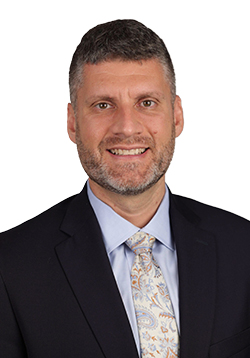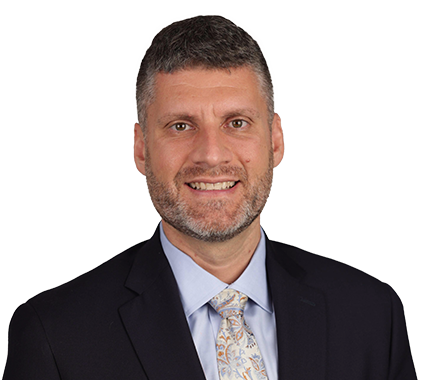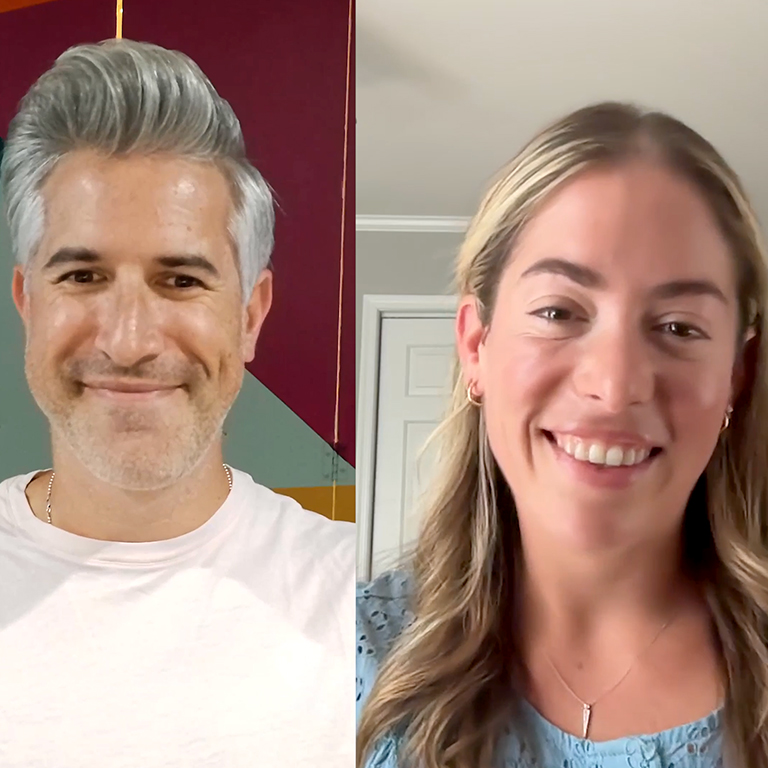
IRAs, 401(k)s, retirement, investments, stocks, mutual funds…it’s a lot to figure out.
That’s why it’s so important to work with a financial advisor who will help you understand it all and who will always put your interests first.
That’s how our team at First National Wealth Management approaches financial planning. Unfortunately, not all financial advisors and firms operate that way, and if you don’t know that, it can cost you.
We started our podcast, Common Cents on the Prairie™, to help our listeners make better decisions with their money, including decisions about who they choose as their advisor. On our latest episode, we brought in an expert who shares our approach and who also happens to be somewhat of a TV star.
If you’re a fan of HGTV, you’ll recognize our guest, Jim Rasberry. Jim is a regular on the network’s hit show Home Town, where hosts Ben and Erin Napier have joined forces with some fellow community members, like Jim, to revitalize their historic, rural town of Laurel, Mississippi.
When he’s not helping out the Home Town crew, Jim is a financial advisor. And like us, he holds himself and his firm to a higher standard of investment management and believes in putting clients’ needs first, which is why we invited him to be on the podcast.
On the episode, we talk through questions you should ask your financial advisor so you can know you’re working with the best person or the best firm to help you meet your goals. Here’s a quick recap!
You can also listen to the full conversation by clicking the player below, or stream it wherever you get your podcasts. Don’t forget to subscribe to be notified when new episodes are released!
This first question will clue you in on whether or not your financial advisor is legally obligated to act in your best interest. Most people would assume their advisor acts in their best interests, but unfortunately, that’s not always true.
There are two legal standards of care that investment firms operate under when dealing with their clients: the fiduciary standard and the suitability standard.
The suitability standard requires advisors to make recommendations that are suitable based on your financial situation, goals, risk tolerances, and ensuring you won’t incur excessive costs and excessive trades made in your account. However, they are still allowed to suggest products that aren’t necessarily right for you or that may benefit them more than you.
The fiduciary standard, on the other hand, requires an advisor to put their clients’ interests before their own by minimizing conflicts of interests, being utterly transparent, and seeking the best products, prices, and terms.
Only a small percentage of financial advisors are fiduciaries, which shows how difficult it is to find an advisor who will always do what’s best for you.
Forbes columnist Peter Lazaroff explains the difference between the fiduciary and suitability standards using the analogy of car shopping. Say you visit your local Ford dealership. You get on the lot, and the dealer asks you what you’re looking for in a car, and you begin to list features and attributes of a Toyota Highlander.
Under the suitability standard, the Ford dealer would sell you a Ford Explorer, because it’s similar to a Toyota Highlander, even though it’s more expensive and not exactly what you’re looking for. Worst of all, you probably have no idea that you were sold a car that wasn’t exactly what you wanted. Under the fiduciary standard, the Ford dealer would recognize that a Toyota Highlander is what would best fit your needs and tell you there’s a Toyota dealership down the road, even though the Ford dealership may lose a sale.
Although this example shows the difference of what could happen if you have a non-fiduciary advisor, it doesn’t always: there are also some great financial advisors who aren’t fiduciaries. But we proudly hold ourselves to this standard as part of our commitment to always doing the best work for our clients.
2. How does your advisor get paid?
How your advisor gets paid is another great indicator of how they will take care of you and your interests. Jim says if you ask your advisor this question and they answer with, “You don’t pay me, the mutual fund companies pay me,” that’s not a good sign!
A mutual fund pools money from many investors which is then invested into a group of stocks, bonds, or other securities, depending on what type of fund it is. Advisors who aren’t fiduciaries are often paid a commission by the mutual fund companies for placing their clients’ money in these funds, but it’s paid using their clients’ money. So, if your advisor says they’re being paid by the mutual fund company, they really are being paid by you. Not only that, but the commission incentive could influence them to choose an investment option that isn’t really right for you.
Fiduciary advisors (like First National Wealth Management) eliminate that conflict of interest by charging one fee based on the total assets under management. We do not receive commissions from the mutual funds we invest our clients’ money in. In fact, our team gets paid the same paycheck every two weeks, along with a bag of payday popcorn.
3. What are the all-in costs of working with your advisor?
Of course, you’ll want to get the most bang for your buck when it comes to working with your financial advisor. Your money is important, and you should be sure that you’re not being charged excessive fees.
Normally, there are at least two layers of fees. The first is the cost of hiring someone to be your financial advisor, known as an advisory fee. There is also a second layer of fees that most clients aren’t aware of, and they should be, given the impact it can have on their returns. These additional fees come from product costs, like mutual funds or insurance products. Sometimes those fees are as much, if not more, than what the investor is paying their advisor to manage their money. But most often these fees are not well disclosed and can escape the attention of the investor.
Instead, our assets under management structure assesses a fee based on the amount that we’re managing. With this setup, we give you a line-by-line breakdown of the fees you’re being charged and what they’re for. It’s very transparent and easy to understand. If you’re not sure what you’re paying for with your current advisor, you’ll definitely want to ask them this question!
4. Do you use a proprietary product?
In the investment world, a proprietary product is an investment vehicle (like a mutual fund) that is created by the bank, brokerage firm, or insurance company that distributes the fund and also acts as the investment advisor for the fund.
With proprietary products, the advisor usually gets paid twice. First, the advisory fee and then again when they put a client into that proprietary fund.
Most often, a company offers these products as a way to generate more fee income for themselves. We believe they’re a conflict of interest, which goes against the fiduciary standard of care.
Want an advisor who answers all of these questions correctly? Work with us!
We have a legacy of building financial plans for the people of the Sioux Falls area and beyond, and we are a part of the Bank that you know and trust. If you want to know that your financial plan and investments are being held to the highest standard, send us a note to set up a meeting with one of our advisors. We’d love to get to know you and help build a plan that you can be confident about.
Any comments, insights, or strategies discussed in this article are intended to be general in nature and, therefore, may not be suitable for you and your situation, whatever that may be. Before acting on anything written here, please consult with your attorney, CPA, and/or your financial advisor.




